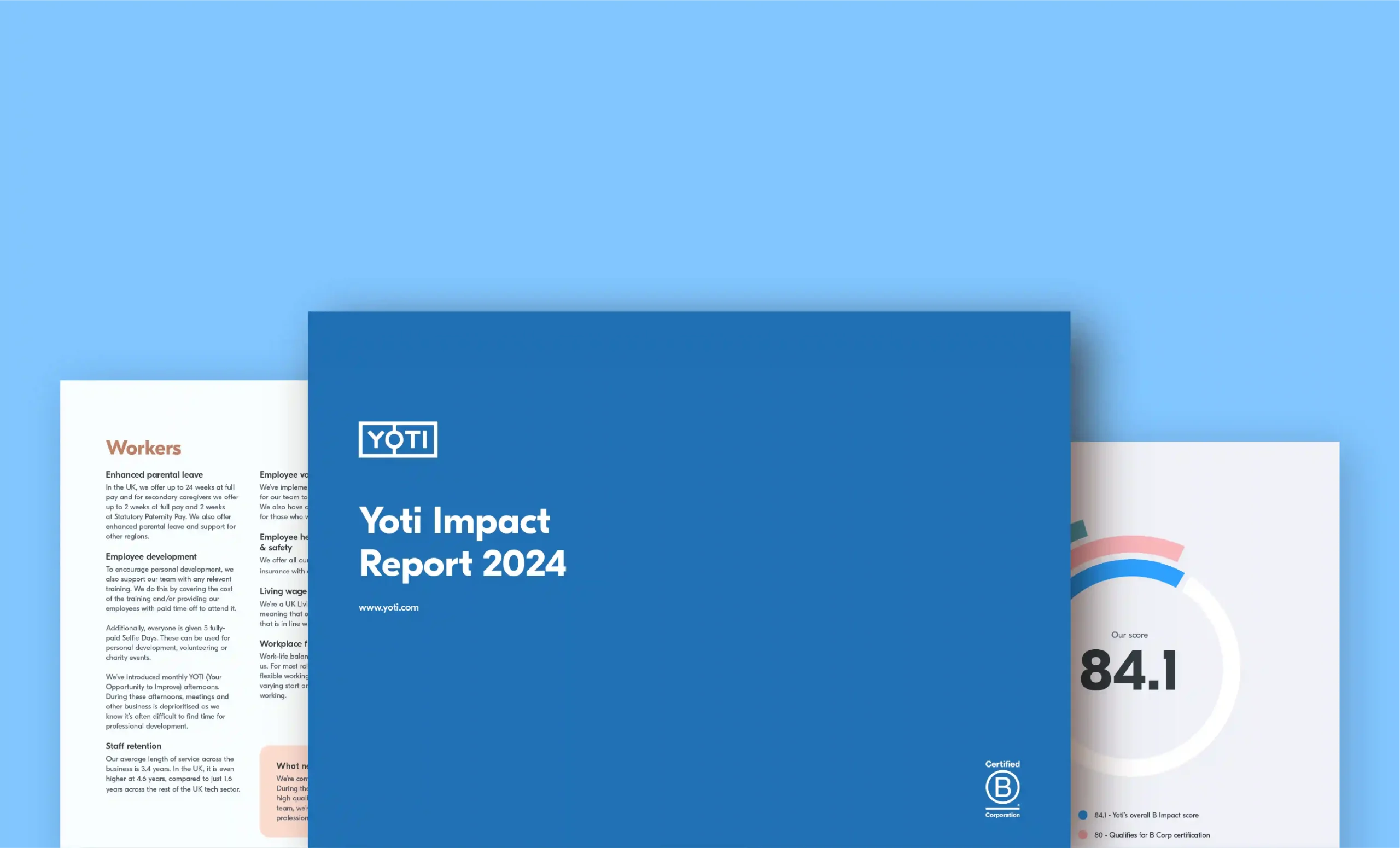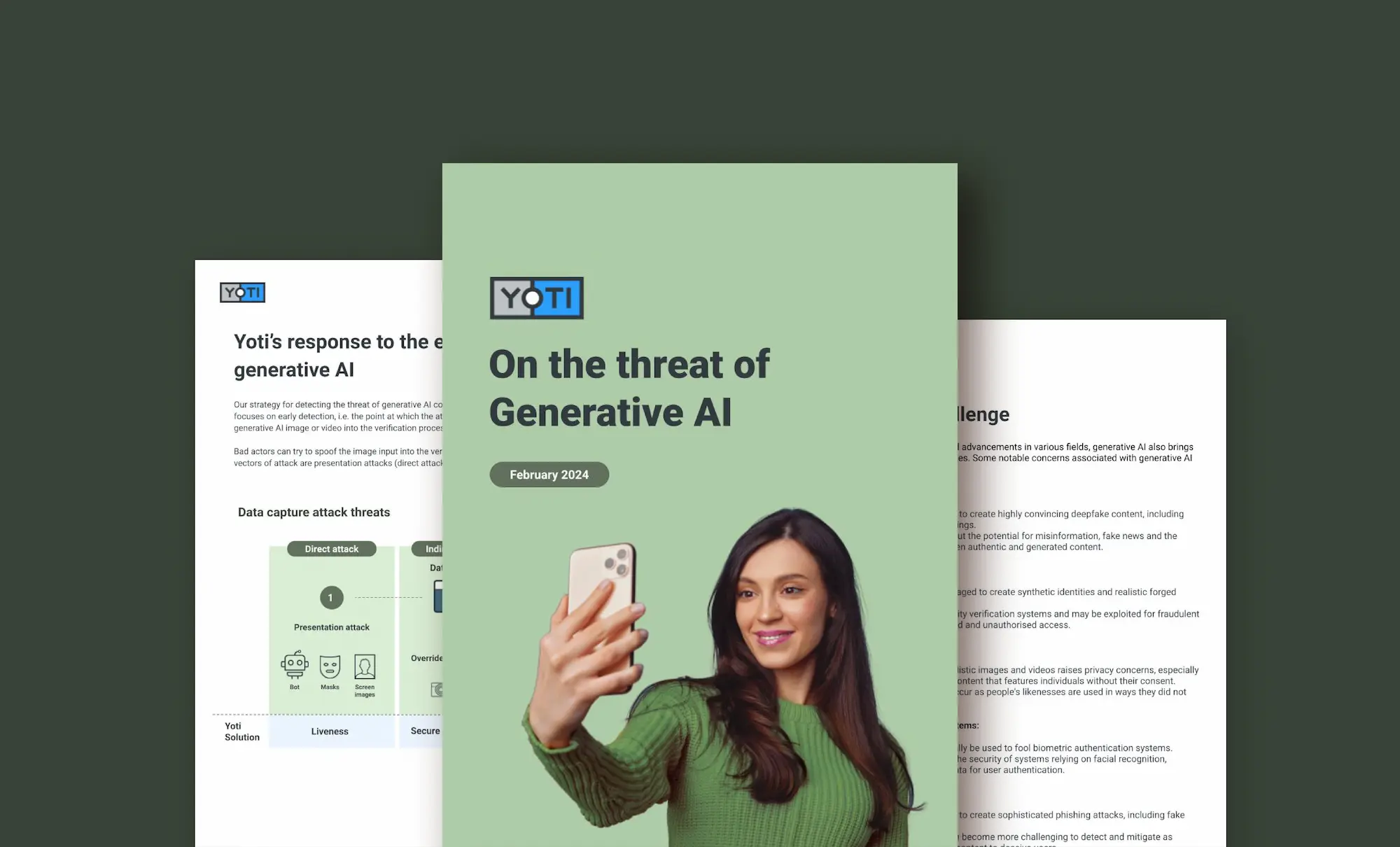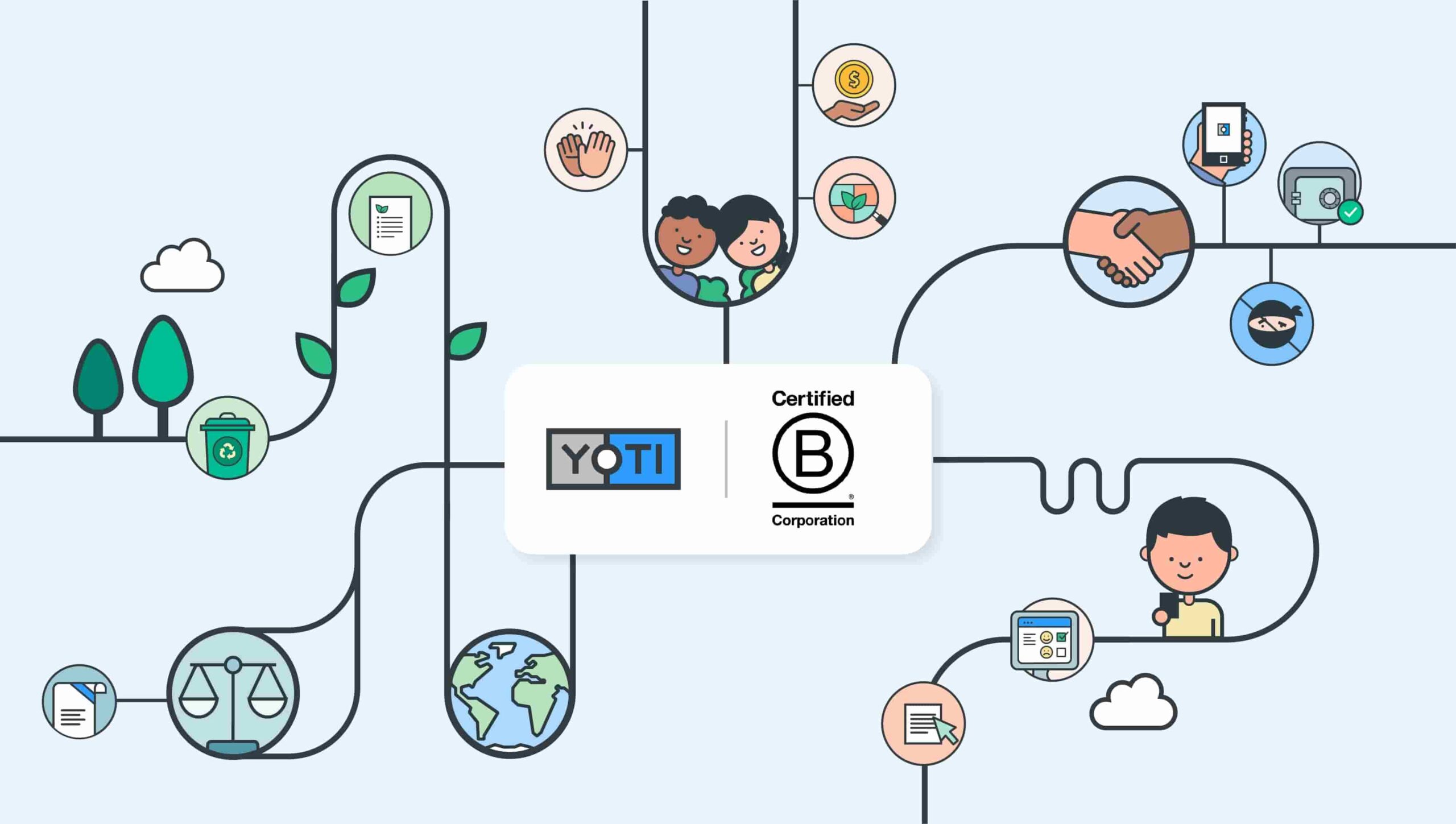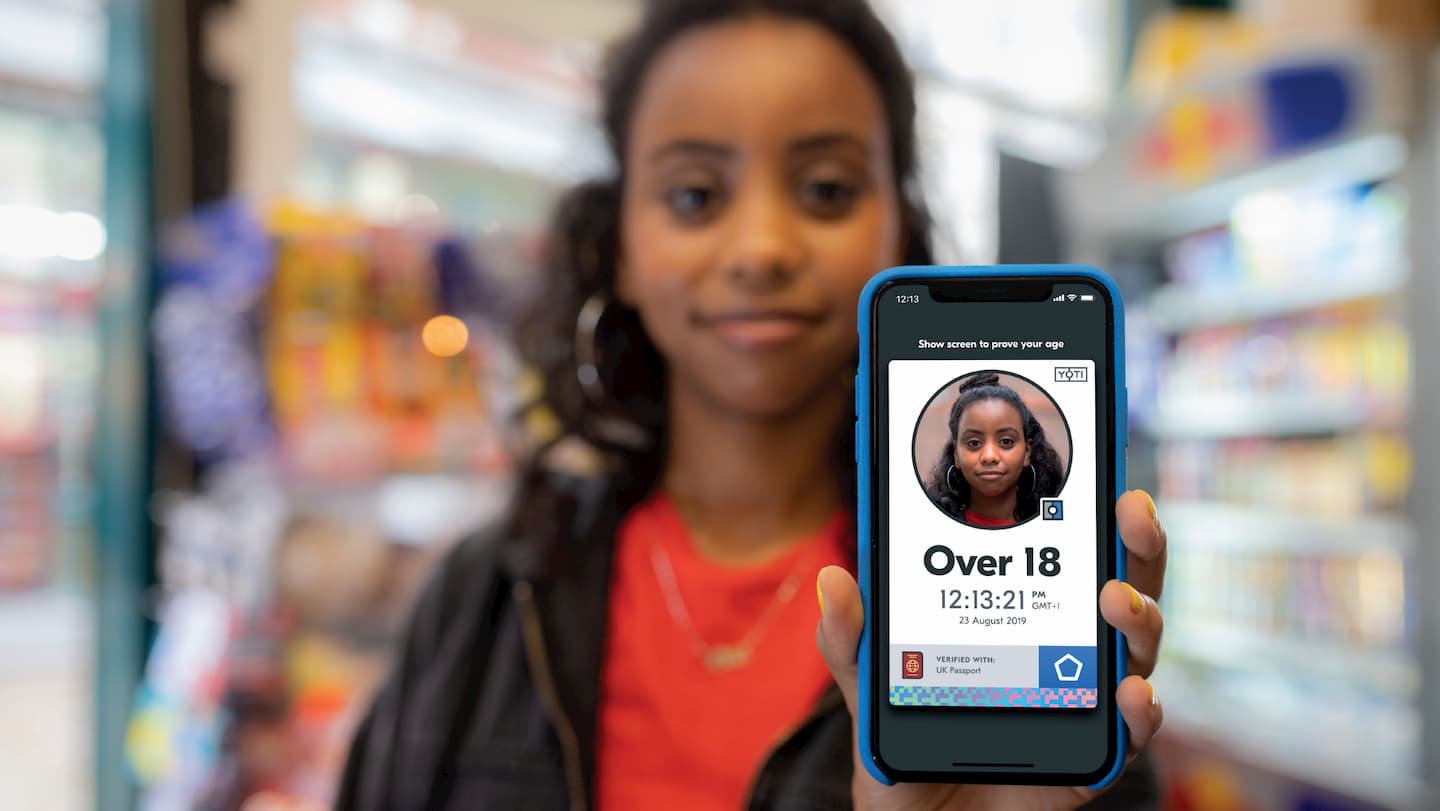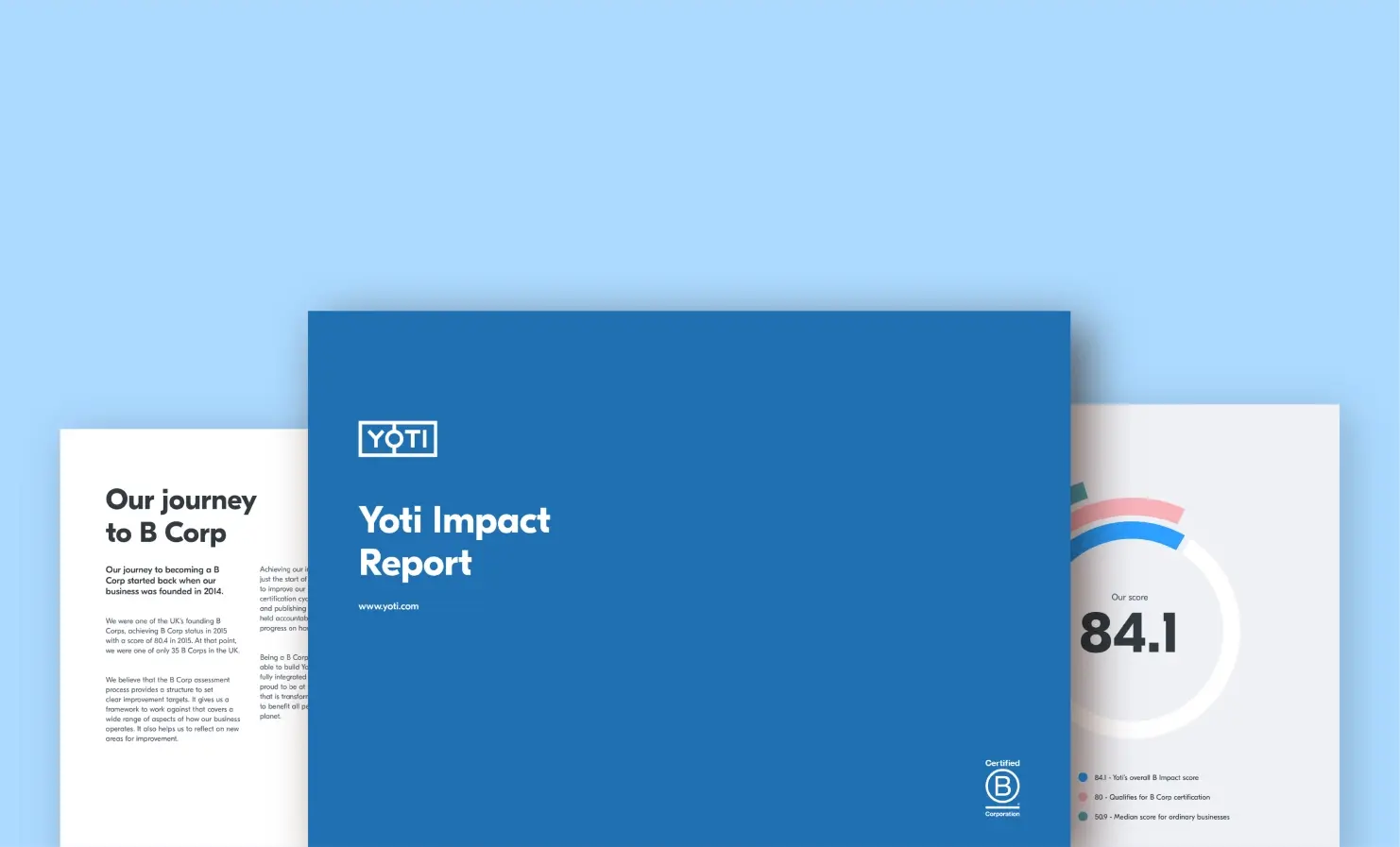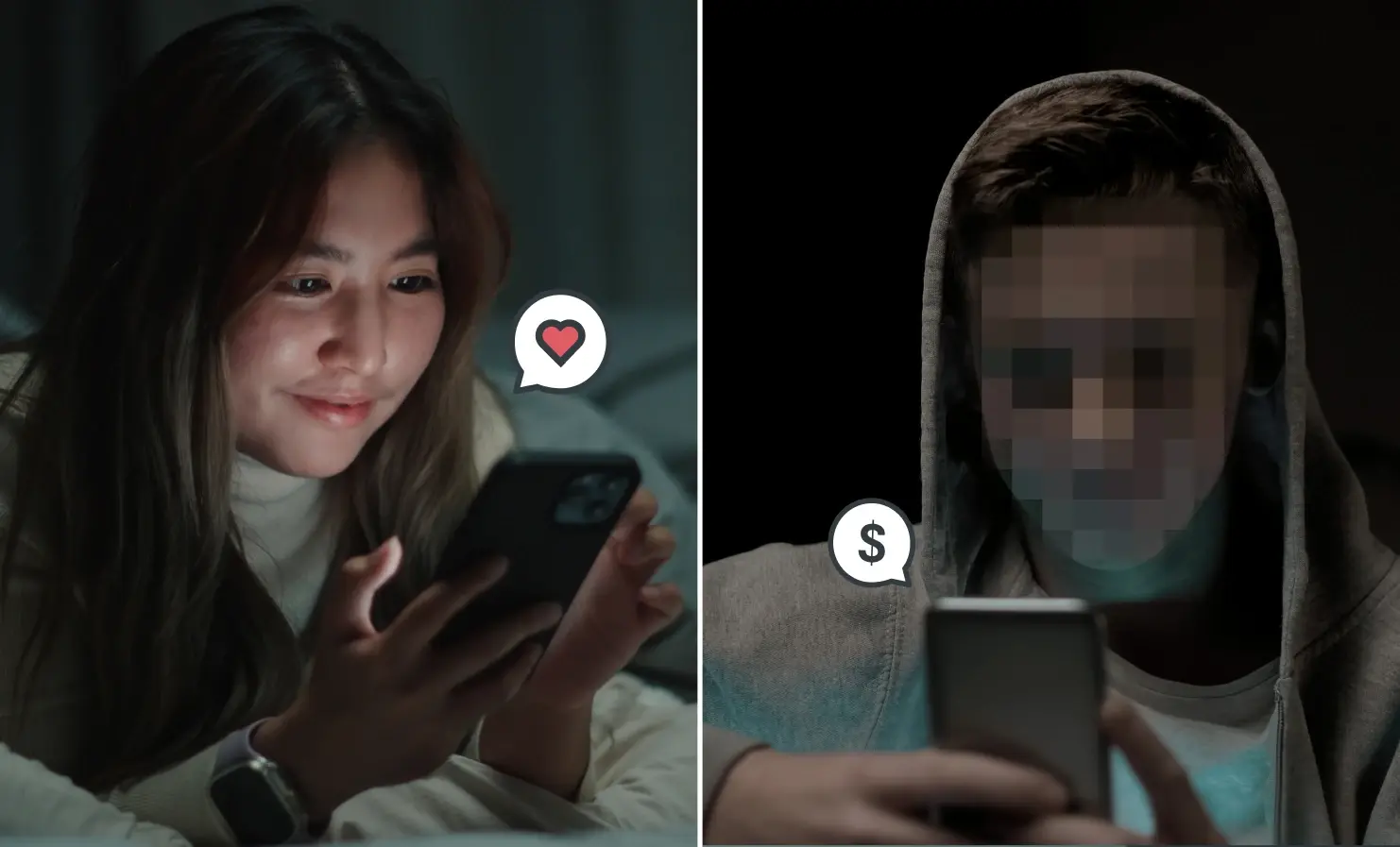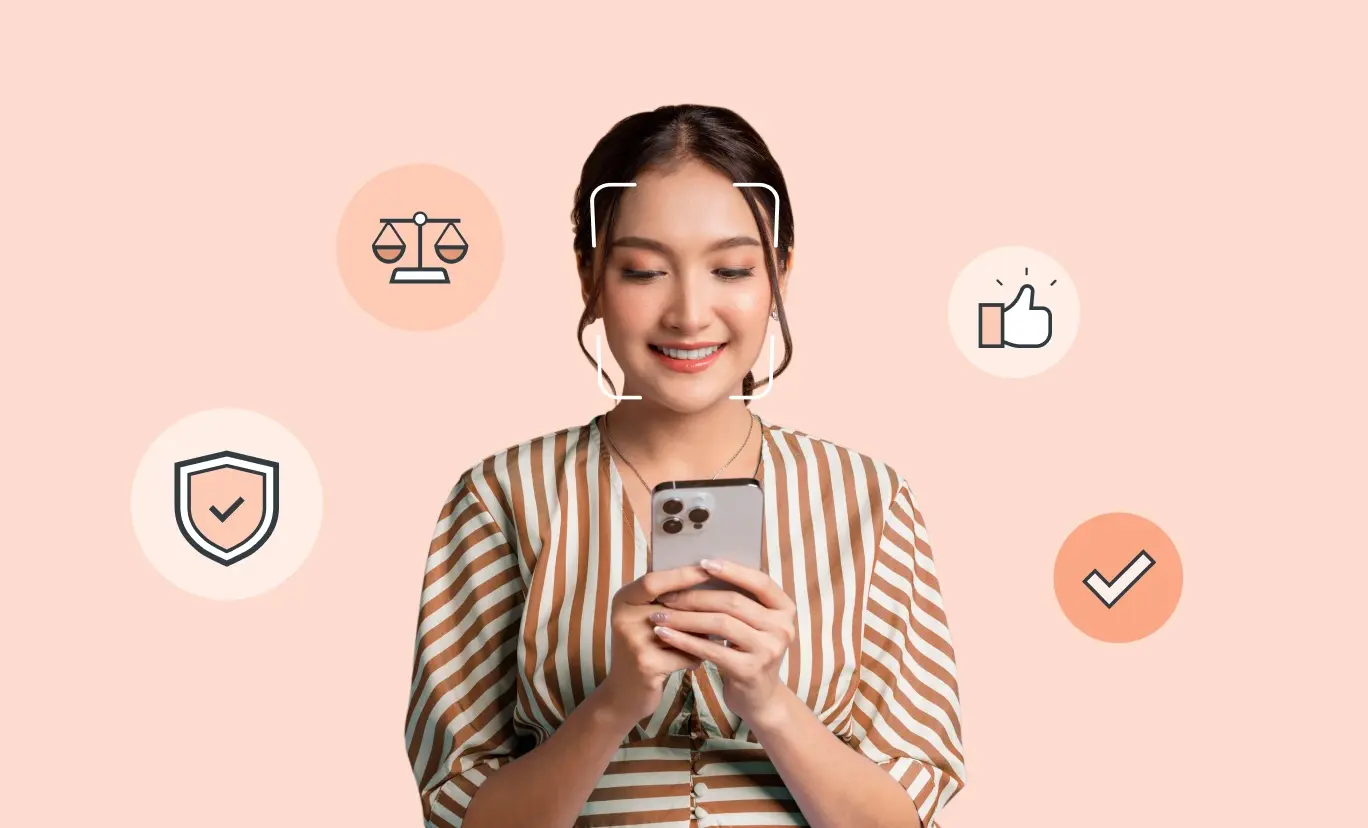Yoti blog
Stories and insights from the world of digital identity
Say hello to our 2024 B Corp Impact Report
We’re delighted to reach our ninth year of being a B Corp. When Yoti was founded 10 years ago, we knew that we wanted to do business the right way. Because that’s the only way we can truly make the digital world safer for everyone. Our founders knew that in this industry, we were going to come up against some complex ethical questions. Working with identity, personal data and biometrics is a delicate matter. And that’s one of the reasons we became a B Corp – to hold us accountable to all our stakeholders including our people, clients, suppliers, the
DSIT report on public views of digital identities
Last year, the Department for Science, Innovation and Technology (DSIT) commissioned a public dialogue to seek views from the public on digital identities. They wanted to explore the benefits and concerns associated with digital identity services. We take a look at some of the key findings and themes from the public dialogue, and what this means for the future of digital identities in the UK. UK digital identity and attributes trust framework Digital identities give us a way to prove who we are, without needing to use physical documents. They can offer us greater privacy, security and convenience over
Thoughts from our CEO
In this blog series, our CEO Robin Tombs will be sharing his experience, whilst focusing on major themes, news and issues in the world of identity verification and age assurance. Digital age verification for alcohol I’m pleased to see the UK Home Office consult on whether age verification technology should be allowed for the sale of alcohol. This is a big step forward and demonstrates the growing importance and demand for digital proof of age. Yoti’s technology can help remove the significant challenges and high levels of abuse faced by retail, bar and security staff when assessing the
Yoti releases white paper detailing approach to combating generative AI and deepfakes
1st March 2024, London, UK – Digital identity company Yoti has published its first Generative AI white paper, detailing its approach to combating deepfakes. Yoti has focussed their strategy on early detection, using tools to prevent AI-generated content or attacks at the point of source. Whilst offering numerous benefits and advancements, generative AI also brings potential threats and challenges, including: Identity theft and fraud; the technology could be used to create synthetic identities and realistic forged documents Fake content; the creation of highly convincing content, including images, videos and audio recordings. Privacy concerns; the ability to generate realistic images
On the threat of detecting deepfakes
Learn how Yoti can help you defeat deepfakes As the threat of generative AI in identity and content integrity continues to build, Yoti has developed a comprehensive strategy focused on early detection by using tools to prevent AI-generated content or attacks at the point of source. Yoti’s strategy for detecting generative AI threats targets two attack vectors: presentation attacks (direct) and injection attacks (indirect), with a focus on early detection during the verification or authentication process. Our proprietary and patented technology can work on: Deepfakes Illicit images Account takeovers Identity theft and fraud Content moderation Injection attacks Bot
How Digital IDs can protect you from deepfake scams
Deepfakes are a hot topic right now. Taylor Swift recently became the victim of a deepfake scam; firstly an AI generated video of her promoted a fake cookware competition, and then explicit AI images of her went viral online. AI voice cloning technology pretending to be President Joe Biden tried discouraging people from voting in the polls. And celebrities including Piers Morgan, Nigella Lawson and Oprah Winfrey found deepfake adverts of them online endorsing an influencer’s controversial self-help course. But it’s not just celebrities and public figures who are at risk of deepfakes scams. Fraudsters are also using deepfake
Browse by category
Essential reading
Get up to speed on what kind of company we are

